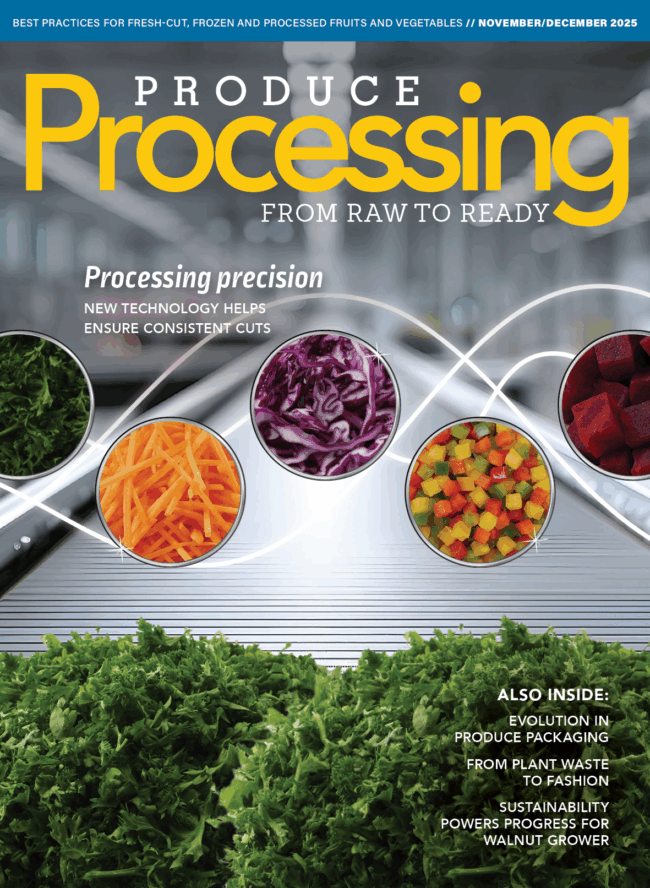Solution aims to reduce reliance on polystyrene in fresh produce packaging
A new modified atmosphere/modified humidity packaging technology is helping produce packers move away from ice-filled polystyrene and waxed carton boxes used to transport fresh broccoli and other vegetables.
Fresh produce packaging company StePacPPC’s Xtend MA/MH bulk bags are being used for long-haul shipments in the U.S. and Japan, according to a news release. The bags are more environmentally friendly than non-recyclable polystyrene, which has been banned in several U.S. states and cities. In addition, the coating on waterproofed waxed carton boxes used for iced broccoli shipments also makes the boxes unsuitable for recycling, and waxed cardboard can produce methane in landfills.
The Otofuke Agricultural Cooperative in Japan (JA Otofuke), a major broccoli producer, is using Xtend bags to ship broccoli from Hokkaido to Yokohama. Japan is placing growing regulatory emphasis on reducing use of non-recyclable materials, including types of polystyrene foam.
JA Otofuke also sought to improve food safety. Studies have shown that, at any point in time, the amount of microbial colony forming units on iced broccoli is higher than on broccoli packed in MA/MH packaging, while vitamin C also leaches out of the broccoli as the ice melts.
“In our efforts to move away from polystyrene foam with ice and its inherent contamination risks, we considered various alternatives for maintaining freshness without using ice,” Akio Yamagishi, manager of the fruit and vegetable sales department of JA Otofuke, said in the release. “We tested various modified atmosphere packaging films, including the Xtend films from StePacPPC. After inspecting the condition of the broccoli upon arrival, Xtend outperformed the rest in both appearance and quality.”

Xtend packaging films use modified atmosphere and moisture control properties to slow respiration inside the packaging, inhibit ethylene (a plant hormone that promotes yellowing of broccoli), remove excess moisture, delay aging, and slow the growth of microorganisms. Its mode of action may also reduce the risk of foodborne illness associated with pathogens such as E. coli, according to the release.
Yamagishi said Xtend packaging allowed the cooperative to transport 66% more broccoli per container by eliminating the space occupied by ice, thereby reducing transportation costs and carbon emissions.
“The ability to transport iceless fresh broccoli across the continent on weight-constrained trucks has led to a net reduction in costs of more than 30%,” he said.
Gary Ward, StePacPPC chief technology officer, said research conducted in conjunction with the Agrotechnology & Food Sciences Group at Wageningen University in the Netherlands found that Xtend packaging reduced the carbon footprint of broccoli shipments from California’s Salinas Valley to New York by 40%.
“It also has proven capabilities for preserving both the quality and nutritional value of fresh broccoli during prolonged storage, extending shelf life, minimizing waste and enhancing food safety,” Ward said. “Our Xtend bulk packaging also successfully preserves other produce traditionally shipped on ice, such as bok choy and green onions.”










